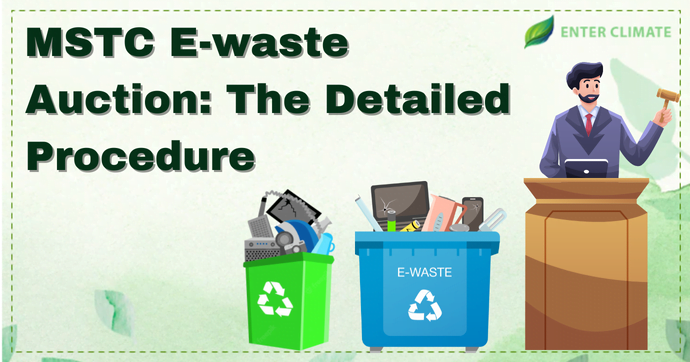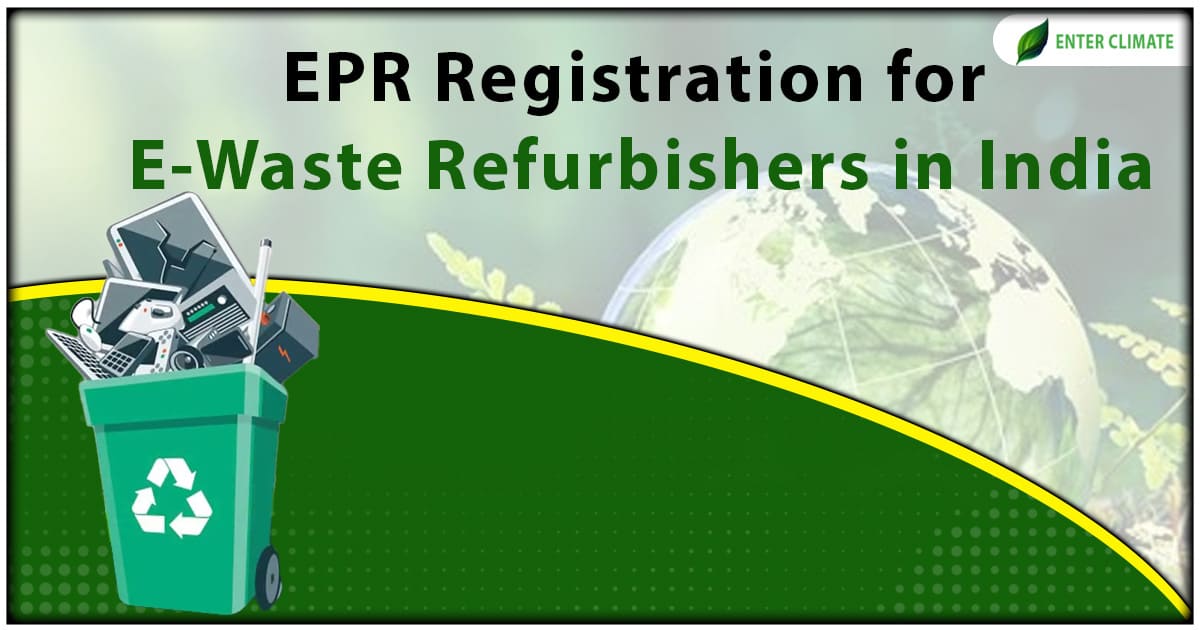MSTC E-waste Auction: The detailed procedure
 07 Oct, 2022
07 Oct, 2022 
Management of electronic waste in India is one of the most important and lucrative markets due to its revenue generation and environmental sustainability. Management of Electrical and Electronics Equipment (EEE) involves the proper collection, recovery, recycling and treatment of e-waste, which is regulated under the E-waste (Management) Rules, 2016. MSTC e-waste auction is a vital part that facilitates the Producers/Importers/Brand Owners (PIBOs) by providing them with the raw material for electronic waste management. The recyclers/producers acquire waste EEE by partaking in the auction process organised by various state authorities from time to time.
MSTC
MSTC Limited or Miniratna Category-I PSU[1], regulated under the Ministry of Steel, Government of India, is also the company’s majority shareholder (holds 64.75% shares). MSTC was established as “Metal Scrap Trade Corporation Limited” as per the provisions of the Companies Act, 1956 and was later changed to MSTC Limited as per the special resolution passed by the shareholders.
MSTC is a leading Public Sector Undertaking (PSU) enterprise involved in e-commerce-linked services and the progress of personalised solutions. These solutions are also included in the MSTC e-waste auction. The purchasers of scraps or spares need to register themselves with MSTC as a buyer.
Further, to facilitate the buyers, MSTC limited launched its e-auction portal in 2002. Metal Scrap Trade Corporation Limited also ensures transparency, fairness and equal opportunity in online bidding.
The different types of products/materials included in the MSTC e-waste auction are: –
- Waste Electrical and Electronic Equipment (WEEE)
- Coal, petcock, lignite
- Agricultural and horticultural produce
- Customs confiscated goods
- Scrap and surplus items
- Minerals like manganese ore, iron ore, chrome ore, etc.
- Coal mine block
- Forest produces timber, sandalwood, red sandal, tendu leaves, etc.
- Major and minor mineral blocks
- Moveable and immovable properties
The method followed for the MSTC e-waste auction is –
- To put only a selected number of items on auction. Items can be offered on a regular and sustained basis.
- Initiate a drive to register actual buyers of the item for permanent registration.
- Advance notice of selling events is sent by e-mail to the registered customers.
- Auctions are after that held on pre-announced dates and times.
Some of the core components of the MSTC e-waste auction are:
- Permanent registration – MSTC provides permanent registration to the bidders to ensure that information about approaching sale procedures is communicated. The information given by MSTC to the bidders is only related to items of their choice.
- Before the auction begins, the principle (stakeholder) provides either a floor price or reserve price to the system by principle (stakeholder).
- Suppose the highest price surpasses the floor or reserve price, as the case may be. In that case, an automatic sale warning letter is issued by the system without any manual interference making the system transparent.
- The auction stays beyond the postulated closing hours until no bid is established for a definite period (5 to 8 minutes, depending upon the item).
Modules used for MSTC e-waste auction
The key modules available for the MSTC e-waste auction are:-
- Price only bid (English Action)
- Price cum quantity bid (Yankee Auction)
- E-trader cum e-auction/e-trader
- Two-stage bid (Technical cum price)
- Simultaneous Multiple Round Ascending Auctions (SMRA)
- Book building
- Swizz challenge
E-waste Auctioning process in India
In India, PIBOs (Producers/Importers/Brand Owners), as per the guidelines published by the CPCB (Central Pollution Control Board)/SPCB (State Pollution Control Board)under the Ministry of Environment, Forests and Climate Change (MoEF), have to fulfil many prerequisite conditions. These prerequisite conditions are as follows:-
- Uncertainprovisions in any offers will not be considered or accepted.
- The attributes and description and proper inspection of the e-waste must be provided to the person bidding to enable him to quote their rates.
- Once the offer is acknowledged, the e-waste is at the buyer’s peril in every procedural trait.
- The e-waste bid in an auction will be sold to the bidder quoting the highest for that specific item.
- EMD(Earnest Money Deposit) will be accustomed to the total payment for the successful bidder.
- For the MSTC e-waste auction, the bidder will compensate for the goods and services taxes at the supply time.
- The person to whom the highest bidder authorises is only allowed to take the e-waste from the disposal location of the CPCB.
- CPCB, if it sees fit to pull back any e-waste item from the deed by giving the reason for the withdrawal, has the authority to do so.
- Earnest Money Deposit will be paid in case of an unsuccessful bidder within one month of the auction date.
- The winning bidder must eradicate all discarded goods from the disposal location within three to five days of acceptance of the balance payment. If the bidder isn’t able to do so, the entire bid sum is lost.
- The item quantity should be deferred to the successful bidder within three days. If, in any case, he fails to pay the EMD, the deposit by him will be lost.
- If any disagreement arises during and after the auction, both parties have to accept the final decision of the chairman of the CPCB.
Documents to be submitted for the MSTC e-waste auction bid
The mandatory document to be submitted by the bidders are:-
- PAN card
- Voter ID/Aadhaar Card/Ration Card for address proof
- Copy of registration and authorisation for disposal of e-waste issued by the PCB or PCC
- Details of bank account
- EMD (Earnest Money Deposit)
The Process for MSTC e-waste auction
- The bidding happens under two systems: a technical bid and a financial bid. This is closed by the participants separately in a single sealed envelope as per the guidelines.
- The technical bids must include an Earnest Money Deposit (EMD) in the amount specified, along with all other required technical information and the appropriate signatures. The commercial bid, in contrast, must be presented in a sealed form and include the bidder’s information along with the specifics of the EMD.
- Bidders prefer state or central PSU’s sealed bids. Bidders prefer the state or central Philippine Statistics Authority (PSA). The Government of India Society seals two bids: technical and financial. The obligation for EMD is waived as the relevant act specifies.
- The technical and financial portions of the proposal will be submitted online separately.
- The technical bid must be presented with legitimate ID proof (self-attested copies of the voter ID, Aadhaarcard or ration card), a recycler certificate verifies copy, and a copy of the demand draught.
- The next step in the MSTC e-waste auction is that the demand draft must be hung in the tender box at CPCB’s reception area before the bid proposal’s due date.
- Only technically competent manufacturers, recyclers and firms will be allowed to participate in the financial bid.
- Only authorised producers, authorised producers, authorised recyclers and authorised dismantlers are allowed to participate in the auction to get rid of e-waste.
Conclusion
MSTC e-waste auction benefits the bidder by removing the middleman by offering a simple way of participating in the auction. This creates a transparent system with minimum transaction cost and provides optimal price setting.
Read our Article: The Do’s and Don’ts of the E-waste Auctioning Process













